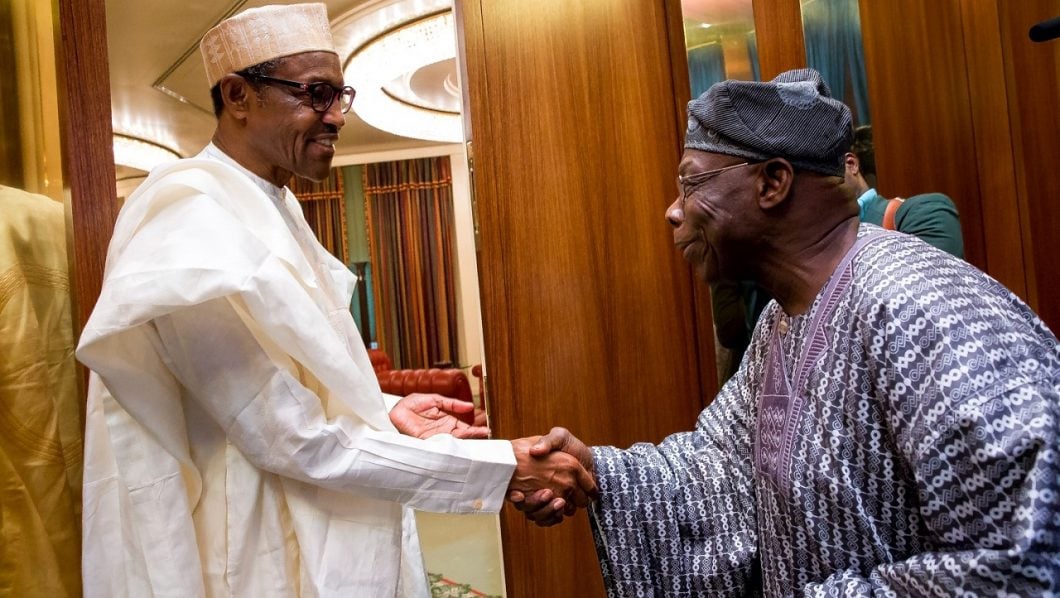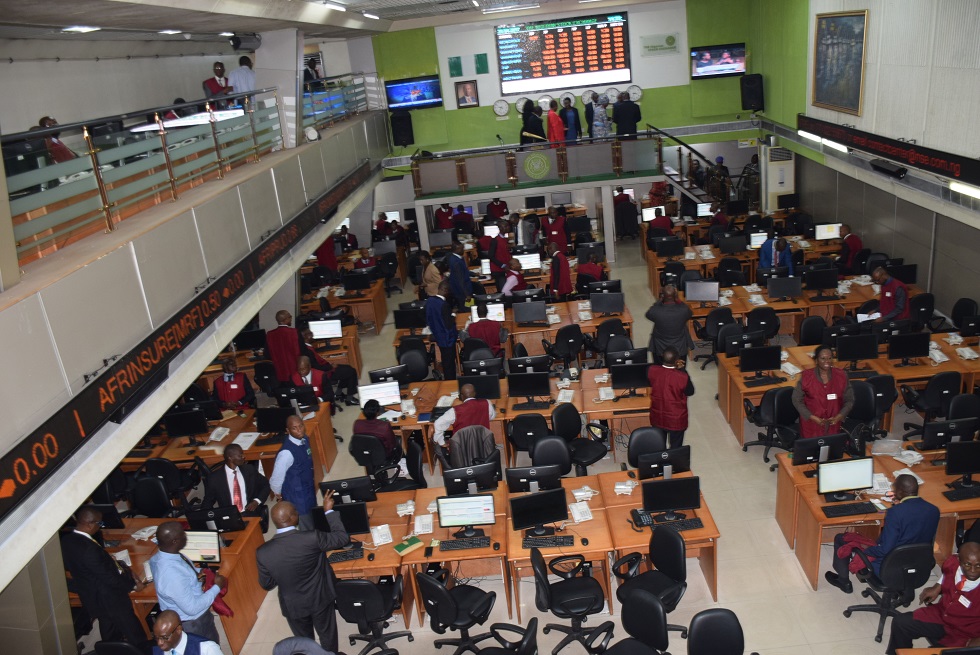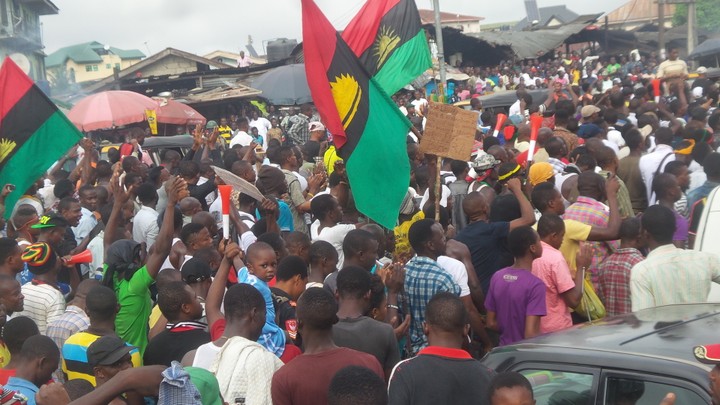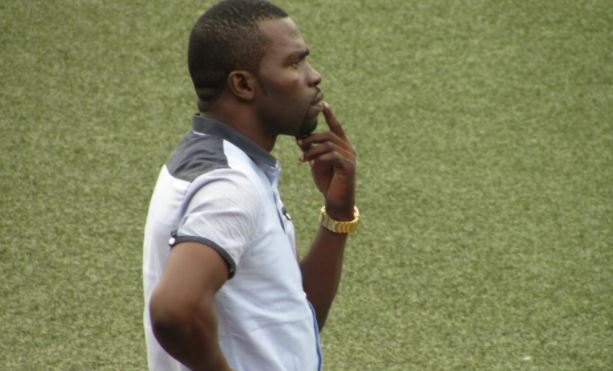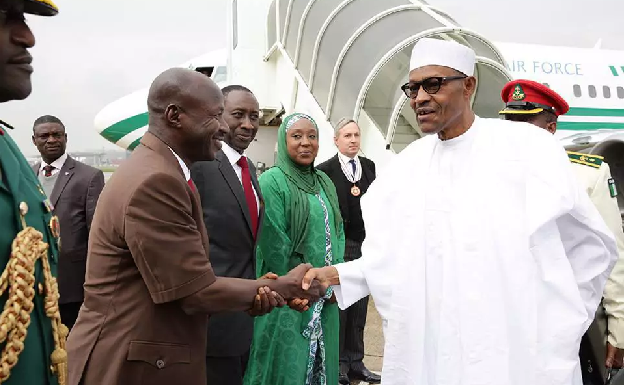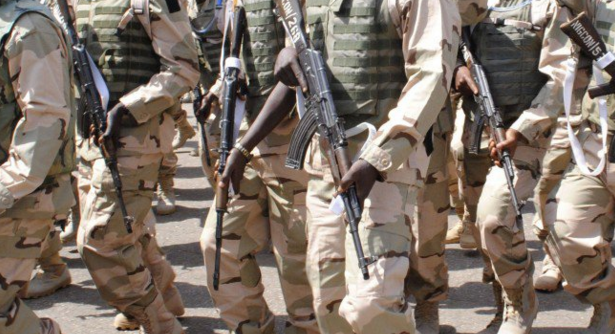In the last 48 hours, there has been a hot exchange between former President Olusegun Obasanjo and the government of President Muhammadu Buhari.
In a letter to Buhari, Obasanjo advised Buhari, his “brother”, against seeking re-election, on the grounds that the president “had failed” in many areas.
But the federal government replied him in a seeming subtle way. Lai Mohammed, minister of information, who issued the statement containing the government’s response, told the elder statesman that his admonition had been taken in good faith.
He also thanked Obasanjo for commending the current administration in the areas of the fight against insurgency and the anti-graft war.
Advertisement
However, he disagreed with the ex-president who said while Buhari has a poor understanding of the economy, he failed to reach out to those who could be of help.
But Mohammed listed what he considered as achievements of the Buhari government as far as the economy is concerned. He also told Obasanjo not to distract the president by discussing the 2019 election.
But the minister was silent on some of the key issues raised by Obasanjo. Here are some of the things Obasanjo talked about which the federal government failed to address in its response:
Advertisement
NEPOTISM
In the letter, Obasanjo alleged that the current administration had been characterised with “clannishness”.
He said the president has also been unable to bring discipline to bear on some of his allies.
“There are three other areas where President Buhari has come out more glaringly than most of us thought we knew about him. One is nepotic deployment bordering on clannishness and inability to bring discipline to bear on errant members of his nepotic court,” he had said.
“This has grave consequences on the performance of his government to the detriment of the nation. It would appear that national interest was being sacrificed on the altar of nepotic interest.
Advertisement
One of the cases Obasanjo raised in this regard is the case of Abdulrasheed Maina, former chairman of the Pension Reform Task Team, who was controversially reinstated into civil service.
The federal government did not say a word on this.
DIVIDING NIGERIA
Obasanjo also said Buhari has a “poor understanding” of the dynamics of internal politics, and this, he said, has cost the nation its unity.
“This (‘poor understanding’ of the dynamics of internal politics) has led to wittingly or unwittingly making the nation more divided and inequality has widened and become more pronounced,” he had said.
Advertisement
“The lice of poor performance in government – poverty, insecurity, poor economic management, nepotism, gross dereliction of duty, condonation of misdeed – if not outright encouragement of it, lack of progress and hope for the future, lack of national cohesion and poor management of internal political dynamics and widening inequality – are very much with us today. With such lice of general and specific poor performance and crying poverty with us, our fingers will not be dry of ‘blood’.”
The statement by Mohammed did not also take this issue into cognisance.
Advertisement
FAIRNESS
Although Obasanjo commended the president for his achievement “so far” in the areas of fighting corruption and insurgency, the former president said Buhari has turned blind eyes to the corrupt practices allegedly committed by his allies.
He said the failure of the president keep his cabinet in check and reprimand them amounts to corruption itself.
Advertisement
Hear him: “There were serious allegations of round-tripping against some inner caucus of the presidency which would seem to have been condoned.
“I wonder if such actions do not amount to corruption and financial crime, then what is it? Culture of condonation and turning blind eye will cover up rather than clean up. And going to justice must be with clean hands.”
Advertisement
Although Babachir Lawal, former secretary to the government of the federation, is suspected to be one of those within Buhari’s government the former president is talking about, he was later arrested and detained by the Economic and Financial Crimes Commission (EFCC).
But let’s leave the judgement out on who he was talking about. The issue was not addressed in federal government’s response.
BLAME GAME
Obasanjo’s grouse was also that the president runs an administration with a culture of blame game — “passing the buck.”
He said instead of taking responsibility for his actions, Buhari’s administration trades blame with any critic or put the blame on the preceding administration.
The former president recalled when the president blamed the governor of the Central Bank of Nigeria “for devaluation of the naira by 70% or so and blaming past governments for it.”
According to him, Buhari was “voted to fix things that were bad and not engage in the blame game” and as such, blaming the CBN governor, in that instance, is, “to say the least, not accepting one’s own responsibility.”
This was also not reflected in the government’s letter.
ILL-HEALTH
In 2017, President Muhammadu Buhari spent over four months treating an undisclosed ailment at a London hospital. Although he handed over to Vice-President Yemi Osinbajo, Buhari’s absence sparked tension and affected some key decisions.
Obasanjo brought up this issue in his letter.
“President Buhari’s illness called for the sympathy, understanding, prayer and patience from every sane Nigerian. It is part of our culture. Most Nigerians prayed for him while he was away sick in London for over hundred days and he gave his Deputy sufficient leeway to carry on in his absence,” he had said.
“We all thanked God for President Buhari for coming back reasonably hale and hearty and progressing well in his recovery.But whatever may be the state of President Buhari’s health today, he should neither over-push his luck nor over-tax the patience and tolerance of Nigerians for him, no matter what his self-serving, so-called advisers, who would claim that they love him more than God loves him and that without him, there would be no Nigeria say. President Buhari needs a dignified and honourable dismount from the horse.”
The government was also silent on this in its response to Obasanjo. Anyway, Mohammed said the Buhari administration had taken the admonition in good faith. That could be his own way of summing up the issues that needed to be addressed in the response to Obasanjo’s “special statement”.

